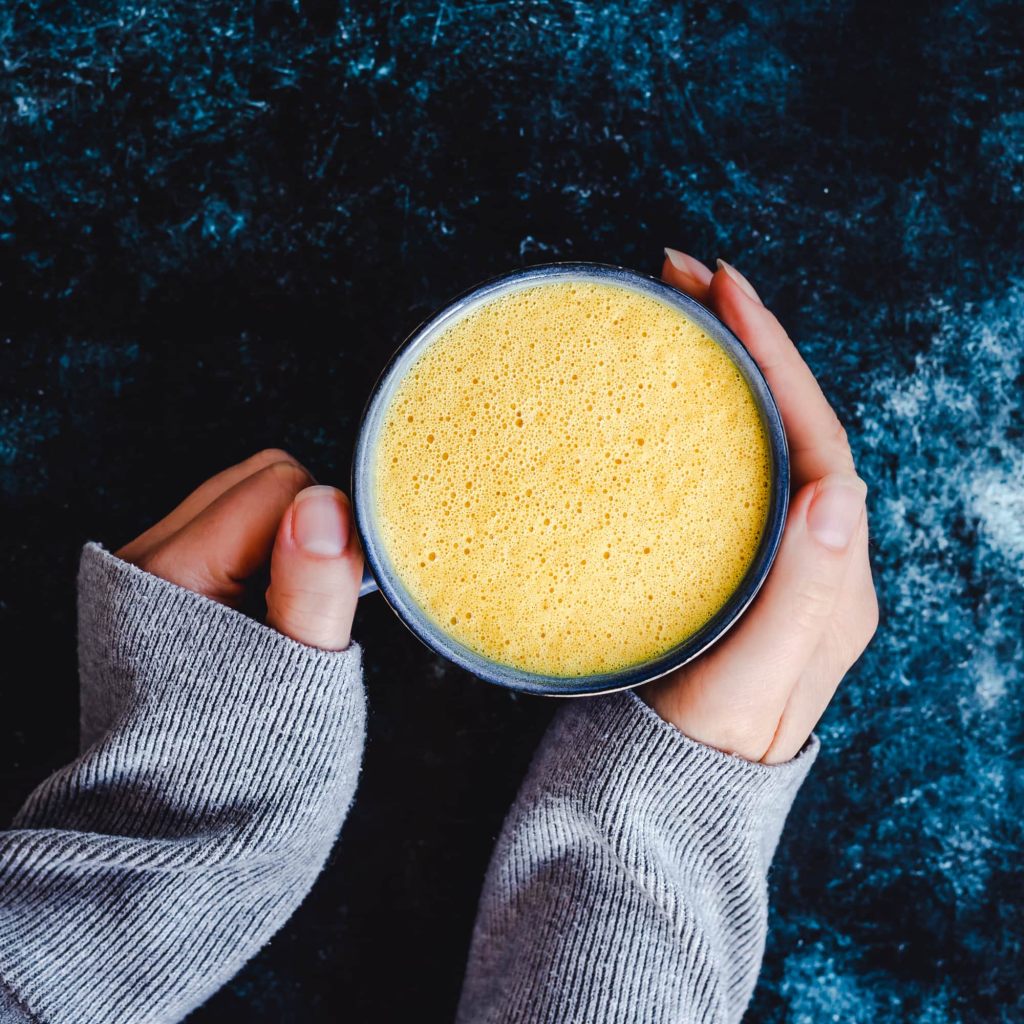Stocking your fridge with colorful fruits and veggies and fish high in omega-3s is a great step toward following an anti-inflammatory diet – but don’t forget to survey your spice cabinet. According to Krista King, RDN, adding turmeric – a spice and medicinal herb originating in Southeast Asia, and what gives curry its yellow color – to your meals can come with anti-inflammatory bonuses, too.
“Curcumin is the bioactive compound found in turmeric and is best known for its anti-inflammatory and antioxidant properties,” King told POPSUGAR. “This means it can help to reduce inflammation and scavenges free radicals that can damage cells.”
While King noted that turmeric is well-tolerated by most and is generally safe to consume – especially in food form – it may not be advised for everyone. King suggests anyone with the following health concerns to check in with a doctor before adding turmeric to their diet: bile-duct obstruction or gallstones, bleeding disorders, diabetes, gastroesophageal reflux disease (GERD), hormone-sensitive cancers and conditions, iron deficiency, pregnancy and breastfeeding, and infertility. Though, as a general rule of thumb, you should always check in with your doctor before making any changes to your diet.
Turmeric comes in different forms – and its form also depends on its potency. For example, King said that one teaspoon of ground turmeric contains about 200 milligrams of curcumin, though it can vary, while the nutrients found in fresh turmeric root will be more easily absorbed and usable by the body. One downside, though, is that fresh turmeric root obviously has a shorter shelf life than the ground spice.
King said that 500 milligrams of curcumin per day is a general recommendation – but again, you’ll want to get personalized advice from your doctor.
“It’s important to note that the curcumin in turmeric is not absorbed well in the bloodstream, but pairing turmeric with black pepper will help increase absorption due to a compound in black pepper called piperine,” King said.
This tip will come in handy when trying some of King’s easy turmeric-enhanced meal ideas! During breakfast, King suggests adding turmeric to oatmeal or chia pudding, or you could make golden milk using a teaspoon of turmeric, a sprinkle of black pepper, and your favorite iced or heated milk.
King noted that a turmeric anti-inflammatory smoothie can be mixed up with banana, coconut milk, your favorite protein powder (King suggests vanilla!), and a dash of black pepper.
For lunch or dinner, try coconut curry: add your favorite veggies, protein (King recommends tofu or chicken), canned coconut milk, fresh ginger, turmeric, and black pepper, and serve with rice, cauliflower rice, or quinoa. King also suggests sprinkling turmeric on roasted veggies with black pepper – another idea perfect for lunch or dinner.
Click here for more health and wellness stories, tips, and news.
Related: I Took Turmeric Shots Every Day For 1 Week, and Here’s How My Body Reacted

